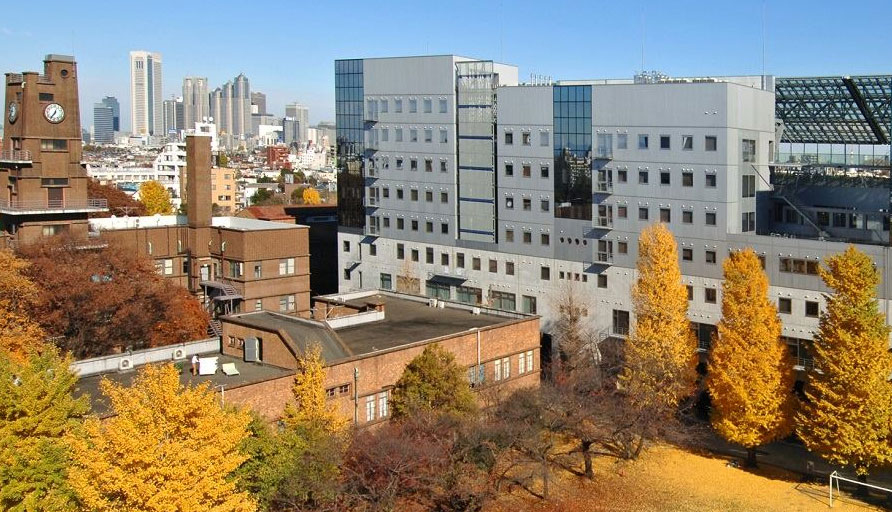5 Things To Keep in Mind before studying in Japan

Japan is gradually becoming a favorite destination of students for international studies. With it having a stellar reputation in terms of performance of its universities, many students would want to develop a career here in the country or take away valuable lessons for the future. But, Japan is also about many things which students often fail to consider.
No doubt studying in Japan is a wonderful idea, but it is not as easy as it may seem. When in Japan, you will have to deal with a lot of things which might make it a little tough on you in the beginning. It is, therefore, advised that you research well before making a move.
For starters, you should consider reading through this article carefully. To help you make a wise decision, I have enumerated 5 things which you should consider before studying in Japan. So, let us take a look, shall we?
- English is Not Common
English is said to be one language that connects us all, but it is not ubiquitously spoken whether you want to believe or not. As you progress towards East Asia, the language becomes less spoken and is largely overshadowed by native language.
Japanese speak Nihongo, which we all call Japanese for the sake of convenience. It has many dialects depending on which region you are concerned with. Even universities do not usually offer courses in English, and this includes courses for international applicants.
It is highly advised that you learn Japanese to ensure that your life is hassle-free. While verbal Japanese may not be that difficult, written Japanese can be and would take a lot of time. However, you can be well-versed in both areas given enough time. - Etiquettes
Japanese society is largely collective and polite. There are many behavioral norms which are followed throughout the length and breadth of its social fabric. For example, there are different types of ‘bow’ which apply to varying situations in Japanese culture. There are table manners you cannot be reckless with.
Before you fly to Japan, it is highly recommended that you invest deeply into studying how Japanese society works: what is appreciated and not appreciated in the society, how people live and interact, and others. - Academic Year
Usually, Japanese academic years commence from the month of April and run until the month of March. There are breaks in between, especially during the Golden Week.
You need to know about Golden Week because it can affect your budgetary requirements. It is the week which falls between the end of April and the beginning of May. It is that time of the year when Japanese workers take day-offs and relax. Due to this, the prices are hiked up whether it is a hotel, food and whatever. So, if you are coming here in the spring, you know what you must do. - Learn To Travel Via Train in Japan
The Japanese rail network is like nothing else. It is the lifeline of the transportation sector, and the Japanese cannot imagine a life without it. The spread of the trains is extensive and you can travel around anywhere at lightning speed (if that’s what you want because they have Shinkansen!).
Public transportation will take you places and that too easily. All you need to do is to learn how to use it. Understand the train map very well. Once you get the hang of it, you would just want to use it as much as you can because it is a real money-saver considering cabs cost a fortune in Japan. - Talk To Locals To Get A Better View
You cannot know enough about a country unless you talk to locals. If possible, get in touch with someone who lives or has lived in Japan. They will be in a better position to advise you on what to do and what not do in Japan. They can also help you in getting done with paperwork, which is a real struggle no matter where you are going.
You can also find student network online which offer assistance to international students about Japan and its education. Connect to them and extract every information you possibly can.
Have you read?
Experiential Marketing: Is it the Right Choice for Your Business by Andrew Witkin.
Here Are The Fastest Production Cars You Can Buy Right now.
Traveling to Bhutan? 5 things you should know.
Best CEOs In The World 2019: Most Influential Chief Executives.
What is Your Risk Appetite by Michael Tennenbaum.
Bring the best of the CEOWORLD magazine's global journalism to audiences in the United States and around the world. - Add CEOWORLD magazine to your Google News feed.
Follow CEOWORLD magazine headlines on: Google News, LinkedIn, Twitter, and Facebook.
Copyright 2025 The CEOWORLD magazine. All rights reserved. This material (and any extract from it) must not be copied, redistributed or placed on any website, without CEOWORLD magazine' prior written consent. For media queries, please contact: info@ceoworld.biz








